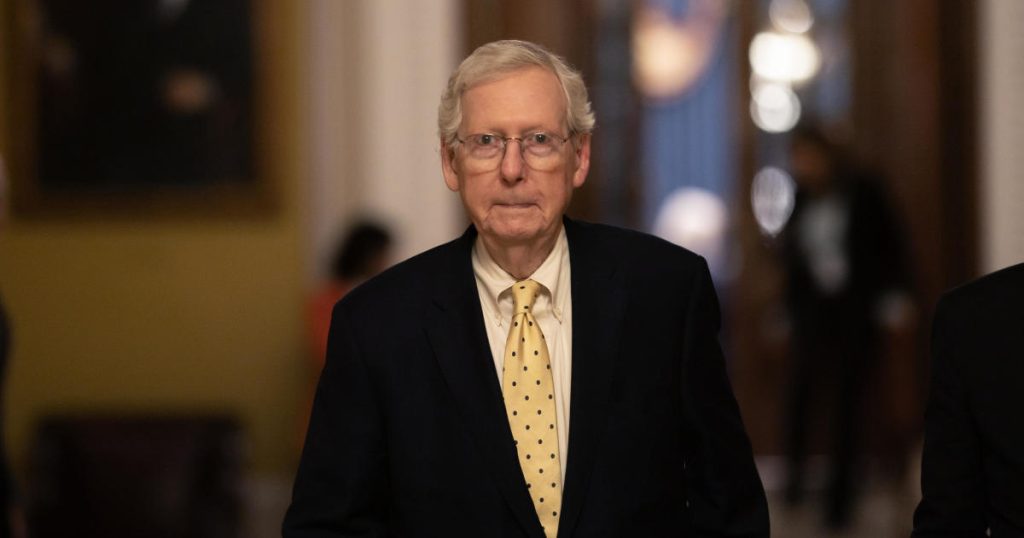Senate Minority Leader Mitch McConnell has endorsed a bill that could potentially lead to a ban on TikTok in the U.S. McConnell described TikTok as a tool of surveillance and propaganda and emphasized the need for urgent attention from Congress on this matter. The bill aims to force TikTok’s Beijing-based parent company ByteDance to sell the platform within six months to maintain access to U.S. web-hosting services and app stores. Critics have raised concerns about the constitutionality of the bill, questioning the government’s targeting of a single company and its potential violation of Americans’ free speech rights.
The bill’s future in the Senate is uncertain, with Majority Leader Chuck Schumer being noncommittal about bringing it up for a vote. Senate Commerce Committee Chair Maria Cantwell has indicated that Democrats on the panel are discussing next steps, including the possibility of holding a hearing on the matter. Cantwell, along with other committee members, will meet with Schumer and Senator Mark Warner to discuss the House bill and potential changes or alternatives. It remains to be seen how the Senate will proceed with the legislation following these discussions.
The issue of TikTok and its potential ban in the U.S. has gained momentum in Congress, with lawmakers expressing concerns about the platform’s ties to Beijing and its use for surveillance and propaganda. McConnell’s endorsement of the bill signifies a bipartisan effort to address these national security concerns and take action against foreign influence through social media platforms. The bill, if passed, could have significant implications for the future of TikTok in the U.S. and its relationship with its Chinese parent company.
The debate over TikTok’s future in the U.S. reflects larger concerns about data privacy, national security, and the influence of foreign companies on American technology platforms. Lawmakers are grappling with how to balance the need for national security with questions of free speech and technological innovation. The discussions in Congress over the TikTok ban highlight the challenges of regulating social media and addressing cybersecurity threats in an increasingly interconnected world.
As Congress considers the fate of TikTok in the U.S., stakeholders from both the public and private sectors are closely monitoring the developments. The outcome of the bill could have far-reaching consequences for the tech industry, international relations, and the future of online platforms. With bipartisan support for the legislation, there is growing momentum for a potential ban on TikTok and other foreign-owned social media platforms that pose national security risks. The coming weeks will be critical in determining the future of TikTok in the U.S. and how Congress addresses the broader issue of foreign influence in the digital age.
Overall, the endorsement of the bill by McConnell and the discussions in the Senate signal a heightened focus on the national security implications of TikTok and the need for congressional action. With bipartisan support for addressing concerns about the platform’s ties to China, lawmakers are exploring options to regulate social media platforms that pose threats to U.S. interests. The outcome of these discussions will shape the future of TikTok in the U.S. and set a precedent for addressing similar national security challenges in the digital age.


